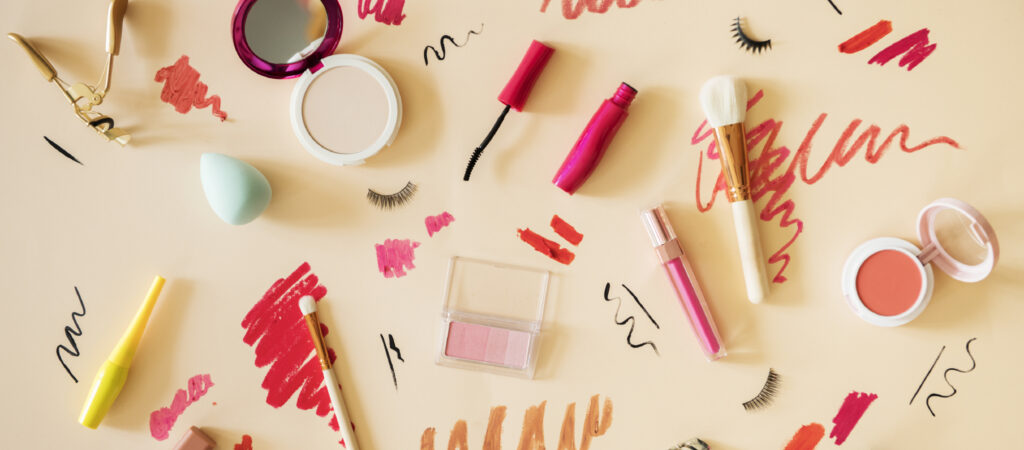Does Makeup Cause Acne? We Explain

Medically reviewed by Dr. Nancy Shannon, MD, PhD on April 15, 2021
Most women with acne have an uneasy relationship with makeup: you get a pimple, so you cover it up with foundation or concealer — but does the process of covering it up actually make breakouts worse?
The answer? It’s complicated. No two people have exactly the same skin, so the impact of makeup on one could be very different from the impact of makeup on the other. That being said, there are a few critical facts about the relationship between makeup and acne that you should know before you decide to change up your routine.
Is Makeup Causing Your Acne?
The research on this topic is mixed. While the majority of makeup products will not necessarily cause acne, improper application and use of them can. Complicating the matter further is the fact that acne caused by makeup, called acne cosmetica, can take anywhere from a few days to several months to appear, making it difficult to pinpoint makeup as the culprit.
Nurx offers prescription treatment for acne, anti aging, melasma, rosacea, and eyelash growth.
How to Know If Makeup Is Causing Your Acne
While it can be very difficult to identify precisely what causes certain acne breakouts, there are a few things you can do to see if your makeup might be contributing. The simplest option is to just stop wearing makeup entirely: if your outbreaks persist even after a 4-week break, then makeup might not be the root cause of your acne. If the acne improves, then you may want to switch makeup formulas or try to go makeup-free as much as possible.
Be sure not to neglect the possibility that your acne may also be the result of the application process: smearing your makeup too hard or applying too much may clog pores. Experiment with applying your makeup gently and decreasing the amount you wear to see if that has an impact on your acne before coming to any firm conclusions.
How to Avoid Acne Caused by Makeup
Just because your makeup may be agitating your acne doesn’t mean you need to put away your product for good. Here are a few key things to keep in mind for reducing the impact of makeup on your acne:
Stick to for noncomedogenic products.
It may be an intimidating word, but non-comedogenic basically just means that a product won’t clog pores or irritate the skin in a way that may cause acne. While you should always gravitate towards non-comedogenic products, just seeing a label may not be enough: the term isn’t standardized or enforced by the FDA, meaning that companies can more or less employ it at their discretion.
Keep the application process clean.
Make sure that your face is fully cleansed before you apply any makeup so you won’t be applying makeup on top of dirt or oil that could cause acne. Moreover, make sure that you regularly clean all of your makeup applicators as well with mild soap or rubbing alcohol. Oils, sweat, and dead skin cells can collect on your blenders and brushes, but cleaning them once or twice a week will prevent them from getting deposited back onto your face. If you wear make-up daily, try to change cosmetic applicators every 3-4 months.
Consider that it may not be acne.
What you think is acne may actually be an allergic reaction to one of the ingredients in your makeup. This is called contact dermatitis and some ingredients to look out for as possible culprits include lanolins, isopropyl derivatives, and certain dyes.
Go bare.
Always clean off your makeup and cleanse your face as soon as the day is finished, and take makeup-free days as often as you’re comfortable doing so. Use your makeup-free time as an opportunity to apply moisturizers, creams, or leave-on acne treatment that may help with what you’re experiencing.
There’s no easy way to solve acne troubles, whether they’re caused by makeup or not. If you’re having difficulty clearing up your skin, get in contact with our team of medical providers here at Nurx today to learn about the options available to you. There’s a treatment out there that will work for you, and we’re here to help you find it.
This blog provides information about telemedicine, health and related subjects. The blog content and any linked materials herein are not intended to be, and should not be construed as a substitute for, medical or healthcare advice, diagnosis or treatment. Any reader or person with a medical concern should consult with an appropriately-licensed physician or other healthcare provider. This blog is provided purely for informational purposes. The views expressed herein are not sponsored by and do not represent the opinions of Nurx™.







